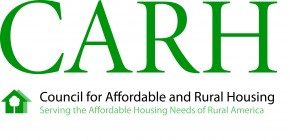- November 2022
- October 2022
- September 2022
- August 2022
- July 2022
- June 2022
- May 2022
- April 2022
- March 2022
- February 2022
- January 2022
- December 2021
- November 2021
- October 2021
- September 2021
- August 2021
- July 2021
- June 2021
- May 2021
- April 2021
- March 2021
- February 2021
- January 2021
- December 2020
- November 2020
- October 2020
- September 2020
- August 2020
- July 2020
- June 2020
- May 2020
- April 2020
- March 2020
- February 2020
- January 2020
- December 2019
- November 2019
- October 2019
- September 2019
- August 2019
- July 2019
- June 2019
- May 2019
- April 2019
- March 2019
- February 2019
- January 2019
- December 2018
- November 2018
- October 2018
- September 2018
- August 2018
- July 2018
- June 2018
- May 2018
- April 2018
- March 2018
- February 2018
- January 2018
- December 2017
- November 2017
- October 2017
- September 2017
- August 2017
- July 2017
- June 2017
- May 2017
- April 2017
- March 2017
- February 2017
- January 2017
- December 2016
- November 2016
- October 2016
- September 2016
- August 2016
- July 2016
- June 2016
- May 2016
- April 2016
- March 2016
- February 2016
- January 2016
- December 2015
- November 2015
- October 2015
- September 2015
- August 2015
- July 2015
- June 2015
- May 2015
- April 2015
- March 2015
- February 2015
- January 2015
- December 2014
- November 2014
- October 2014
- September 2014
- August 2014
- July 2014
- June 2014
- May 2014
- April 2014
- March 2014
- February 2014
- January 2014
New IPERIA Audit & Farm Bill Update
CARH'S BROADCAST E-MAIL –
Regulatory and Legislative Alert
February 4, 2014
1) New IPERIA Audit – Responses Due February 28, 2014
Rural Development (RD) Centralized Servicing Center (CSC) is again conducting audits of Rental Assistance (RA) payments as required by the Improper Payments Elimination & Recovery Information Payment Act (IPERIA). The audit letters were recently sent to companies and borrowers are required to submit the requested documents to CSC for review no later than February 28, 2014. Click here for a sample audit letter.
CARH urges management companies to inform your staff that, if they receive a letter from CSC indicating that an audit is being done on an RA payment, that all requested information should be completed in a thorough manner and within the time frames allotted by the CSC request. In addition, before returning requested information to CSC, it is highly recommended that someone in senior management review the response for accuracy and completeness prior to submission to CSC to ensure compliance.
These audits are used as the agency moves forward on budget requests for Rental Assistance and the results could be used by the Agency in determining management fees. Therefore, it is vitally important to ensure that all documentation is submitted timely and accurately.
If your property receives a letter from CSC, you are required to submit the following required documentation by February 28, 2014:
- Tenant Certification, Form RD 3560-8 (submit the tenant certification based upon the requested effective date).
- Verification of Income
- Verification of Assets
- Medical Expense
- Verification of Disability
- Verification of Citizenship (Farm Labor Only)
Also submit any supporting documentation. Supporting documents include all calculation tapes, internal worksheets and third-party verification used to complete the Tenant Certification. Examples of supporting document include:
- Verification of Employment
- Zero Income Persons
- Unemployment and Unemployment Benefits
- Regular, Unearned Income (e.g., Social Security, pensions, workers compensation)
- Public Assistance
- Alimony or Child Support Payments
- Support for Foster Children or Adults
- Income Tax Return
Before submitting your response to CSC, review carefully your documentation regarding the following top five causes of improper payments:
- Income Documentation/Calculation
- Medical Deductions
- Tenant Certification Dated
- Tenant Certification Current
- Award Letter Included
To assist on-site and property managers, in 2008 CARH created a Training Manual in response to past IPIA audits whose high error rates pose a threat to RD's RA budget. The Training Manual includes a checklist of common errors and proposes solutions. It also references regulations made in Handbook 3560. The manual is a live document, so any questions or comments to improve the Training Manual are welcome.
2) Farm Bill Update
This afternoon, the Senate passed a $956 billion farm bill (H.R. 2642) which will authorize for five years, programs administered by the United States Department of Agriculture. (The House passed the bill on January 29th.) The bill will be signed into law by the President. As with most farm bills, housing programs are not authorized in this legislation. (Jurisdiction for Rural Development's housing programs comes from the House Financial Services Committee and the Senate Banking Committee, not the Agriculture Committees.)
However, due to proposed changes in eligibility of communities due to the 2010 census, language was added to the farm bill which continues the rural housing eligibility definition provision from the Senate's version of the bill. Click here to view the language added to the Senate's version. The provision extends current law through the 2020 Census and increases the population threshold from 25,000 to 35,000. This will help ensure that low-income families–particularly those living in metro counties–will have access to critical USDA resources and programs, particularly those borrowers applying for the Section 538 Rural Rental Guaranteed program since the eligibility population level has been increased.
Please contact the CARH national office at carh@carh.org or 703-837-9001 should you have further questions.





